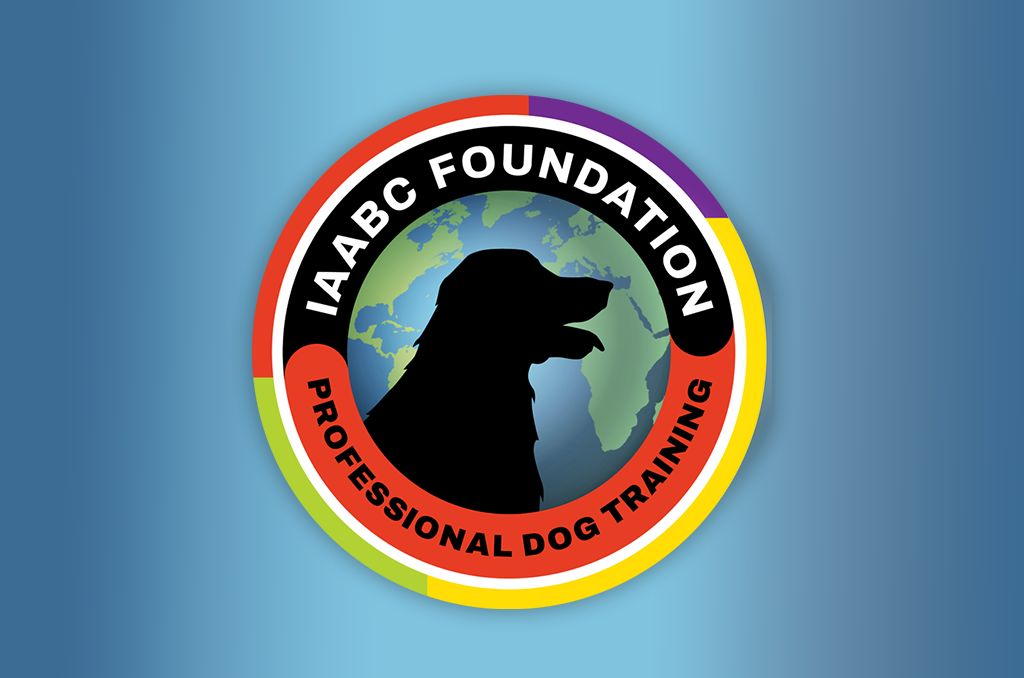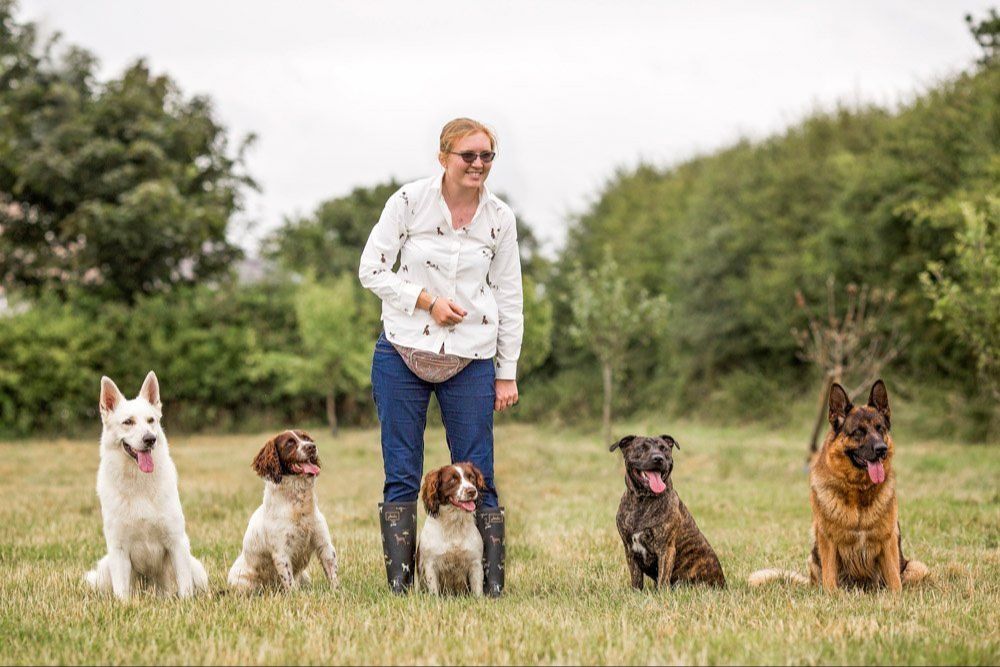Formal Education
While there are no specific degree requirements to become a dog trainer, having a formal education in a related field can be beneficial. Many dog trainers pursue degrees in fields like animal behavior, animal science, biology, psychology, or education (source). These types of degrees provide a strong foundation in animal behavior, learning theory, and instruction methods. A degree demonstrates commitment to the field and shows prospective clients the trainer has comprehensive knowledge. Popular undergraduate degrees for aspiring dog trainers include a Bachelor’s of Science in Animal Behavior or Psychology. At the graduate level, a Master’s degree in Applied Animal Behavior is common.

Though not required, these formal degrees in the sciences equip the trainer with deeper knowledge of canine behavior, cognition, and the principles behind modification techniques. Coursework covers topics like animal communication, operant conditioning, social hierarchies, experimental design, and ethics. Hands-on experience in labs and independent research further augment the curriculum. While hands-on work is vital for dog trainers, the conceptual background from a college degree strengthens a trainer’s expertise and capabilities.
Certifications
There are several respected organizations that offer certification programs for dog trainers. Earning a certification demonstrates that a trainer has acquired a certain level of knowledge and skills. Some of the top certification programs include:
The Certification Council for Professional Dog Trainers (CCPDT) offers various certifications including Certified Professional Dog Trainer-Knowledge Assessed, Certified Behavior Consultant Canine-Knowledge Assessed, and Certified Dog Trainer-Skills Assessed. Candidates must pass a comprehensive exam and meet experience requirements.
The International Association of Canine Professionals (IACP) provides certification for dog trainers, behavior consultants, and more. Certification levels range from Certified Dog Trainer to Certified Master Dog Trainer.
The National Association of Dog Obedience Instructors (NADOI) offers two levels of certification – Certified Obedience Instructor and Certified Master Obedience Instructor. Certification reflects an instructor’s experience and education.
Many reputable dog training schools also offer their own certification programs. It’s important for trainers to research the legitimacy of any certification before pursuing it.
Experience

Experience is critical for dog trainers to develop practical skills and knowledge. According to https://iscdt.com/gaining-practical-experience-as-a-dog-trainer/, hands-on experience offers invaluable opportunities for trainers to apply theory in real settings and understand how to work with different dogs and situations. Apprenticeships and internships enable aspiring trainers to learn alongside experienced mentors, gaining exposure to training methods, troubleshooting common issues, and building their experience.
These practical experiences are formative for new trainers according to https://leashandlearnnyc.com/the-secret-any-good-dog-trainer-knows-experience-alone-is-not-enough/. Working under supervision allows trainees to practice skills, receive feedback, and develop the judgment needed in unpredictable real-life situations. Through hands-on work with dogs and clients, they learn how to properly implement techniques and address each dog’s unique needs.
While formal education provides an essential foundation, apprenticeships and internships transform book knowledge into practical abilities. They enable new trainers to fine-tune their skills under expert oversight, preparing them for professional success.
Specialized Skills
Dog trainers require specialized skills to work with certain types of dogs or handle specific training needs (Julius K9). For example, trainers may need expertise in working with aggressive dogs or training service dogs.
Aggressive dog training requires skills in safely handling dogs with behavioral issues and using techniques like desensitization and counterconditioning to change the dog’s emotional response. Trainers need to know how to read dog body language to prevent escalation and keep all parties safe during training. They should have control skills to redirect unwanted behaviors. Knowledge of dog psychology, training theory, and behavior modification is key (Skillsyouneed).
Service dog training involves skills like task training and public access behaviors. Trainers need in-depth understanding of disabilities to know what tasks are most helpful for service dog handlers. They must train dogs to perform tasks reliably in public and ignore distractions. Patience and clear communication skills help service dog trainers instruct handlers on giving commands and handling the dog in public.
Teaching Ability
A good dog trainer must have excellent teaching skills in order to effectively instruct both dogs and their owners. Patience is crucial, as training takes consistency and time for dogs to learn new behaviors and commands. According to 13 Skills You Need to Become a Dog Trainer, dog trainers need “the patience to repeat the same action or command hundreds of times without getting frustrated.” Trainers must break down complex behaviors into small, achievable steps for a dog to master.

Clear communication is also vital. As stated in The 20 Skills You Need To Become a Dog Trainer, trainers must be able to “explain each new concept in multiple ways,” as each dog learns differently. Using demonstrations, analogies, props, and a variety of verbal cues can help dogs understand what is being asked of them. Trainers also need strong communication skills to effectively educate owners on proper handling techniques, management strategies, and reinforcing training at home.
Ethics
Ethics are extremely important for dog trainers. All reputable dog trainer organizations have ethical codes that members must follow. For example, the Certification Council for Professional Dog Trainers (CCPDT) states trainers should use humane and positive training methods that avoid pain, fear, or intimidation. The CCPDT’s Standards of Practice and Code of Ethics emphasizes using “positive reinforcement and other positive techniques to replace undesirable behaviors with desirable behaviors.”
Similarly, the Association of Professional Dog Trainers (APDT) Code of Ethics highlights the use of humane training protocols that avoid harsh physical or verbal corrections. Their first principle states dog trainers should work to “promote humane training and behavior modification methods.”
Overall, reputable dog training organizations promote force-free, positive training approaches that avoid pain, fear, intimidation, or physical punishment.
Business Skills
In addition to having dog training expertise, successful dog trainers need business skills to build and manage their service. Important business abilities include:
Managing schedules – Dog trainers need to juggle multiple clients and dogs at different stages of training. Using a calendar system and schedule management software helps keep things organized and ensure clients get scheduled at appropriate times. Send reminders for upcoming appointments to reduce no-shows.
Billing – Dog trainers should understand how to properly bill for their services, send invoices, collect payments securely, and chase down late accounts. Using software or working with a bookkeeper can help manage the financials.
Marketing – Promoting services through a website, social media, print materials, and other channels is important for gaining new clients. Dog trainers should dedicate consistent effort to marketing.
For more tips on building a successful dog training business, check out this comprehensive guide.
Safety & First Aid
It’s extremely important for dog trainers to have proper safety and first aid knowledge and training. Dog trainers should be certified in dog CPR and first aid in order to properly respond to emergency situations.
According to the Certification Council for Professional Dog Trainers (CCPDT), dog trainers should know how to perform dog CPR and provide first aid care for choking, wounds, fractures, seizures, heat stroke, poisoning, and more. Being certified in canine first aid allows trainers to quickly assess emergency situations and take appropriate action (source).
Additionally, dog trainers need to take precautions to prevent injuries during training sessions. They should use proper training equipment sized for each dog, keep spaces free of hazards, watch for signs of stress or fatigue, and monitor interactions between dogs. Knowing how to safely break up a dog fight is also an important safety consideration. With preparation and vigilance, trainers can greatly reduce risks and respond appropriately if accidents occur.
Continuing Education
Ongoing education and training is a critical component of being an effective dog trainer. The best trainers are always looking to expand their knowledge and skills through continuing education opportunities like workshops, conferences, and online courses.
There are many excellent conferences that offer workshops on the latest positive reinforcement techniques and the science behind animal behavior and learning. Two major organizations for professional dog trainers, the Certification Council for Professional Dog Trainers (CCPDT) and the Association of Professional Dog Trainers (APDT), host annual conferences with educational seminars led by experts in the field.
For example, the APDT conference covers topics like canine body language, understanding dog play, scent training, business management skills, and ethical standards. Attending high-quality workshops like these allows dog trainers to stay up-to-date on best practices and expand the services they can provide to clients.
There are also many online continuing education opportunities, like webinars and video courses, that allow for accessible learning on a flexible schedule. Responsible dog trainers make continuing education a priority throughout their careers.
Passion
A good dog trainer should have a genuine passion and enjoyment for working with dogs Our Trainers Explain Why They Love Dog Training. Dog training can be a rewarding but challenging career, so it’s important for trainers to truly love spending time with dogs and helping owners through the training process. The best trainers are motivated by seeing dogs’ progress and owners’ happiness rather than simply earning a paycheck. They are patient, energetic, and passionate about making a difference in dogs’ lives. Trainers who love their work will be more successful keeping owners engaged and dogs eager to learn.

